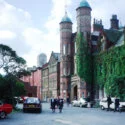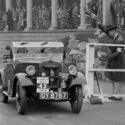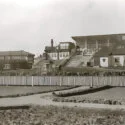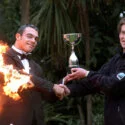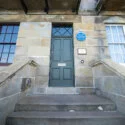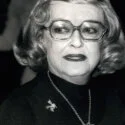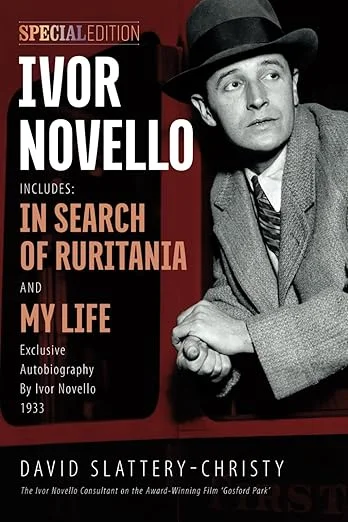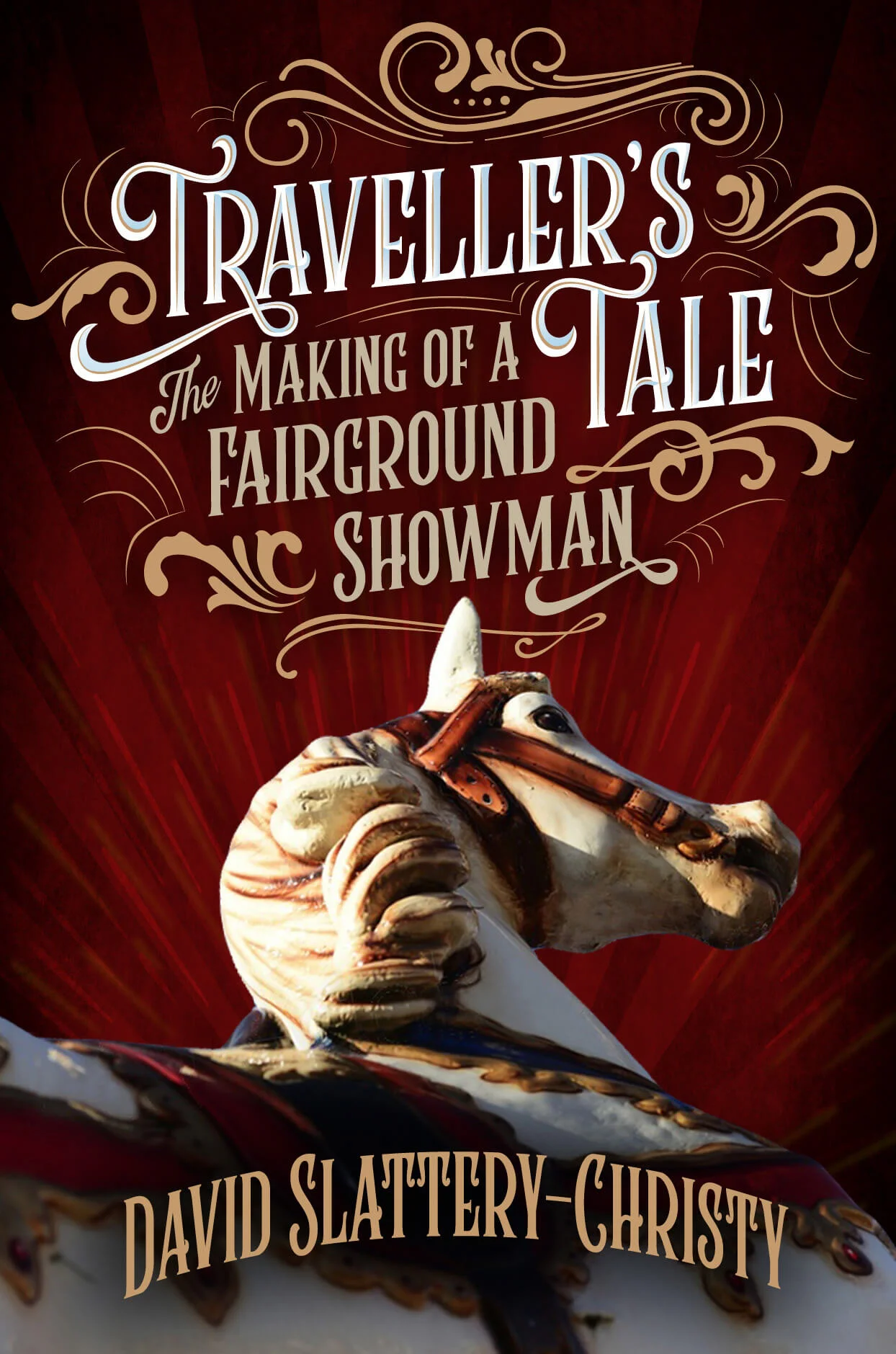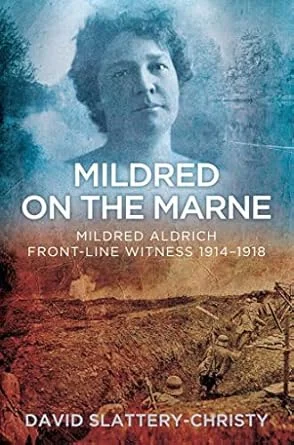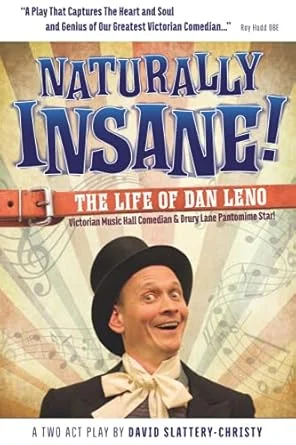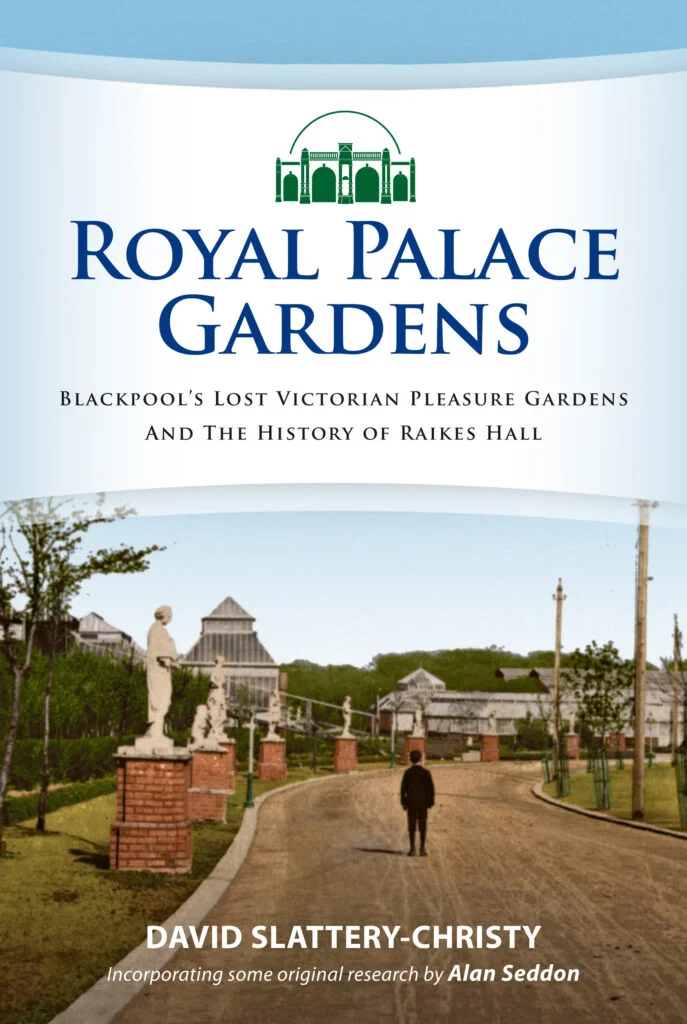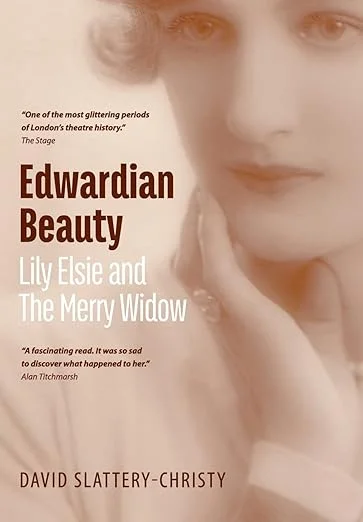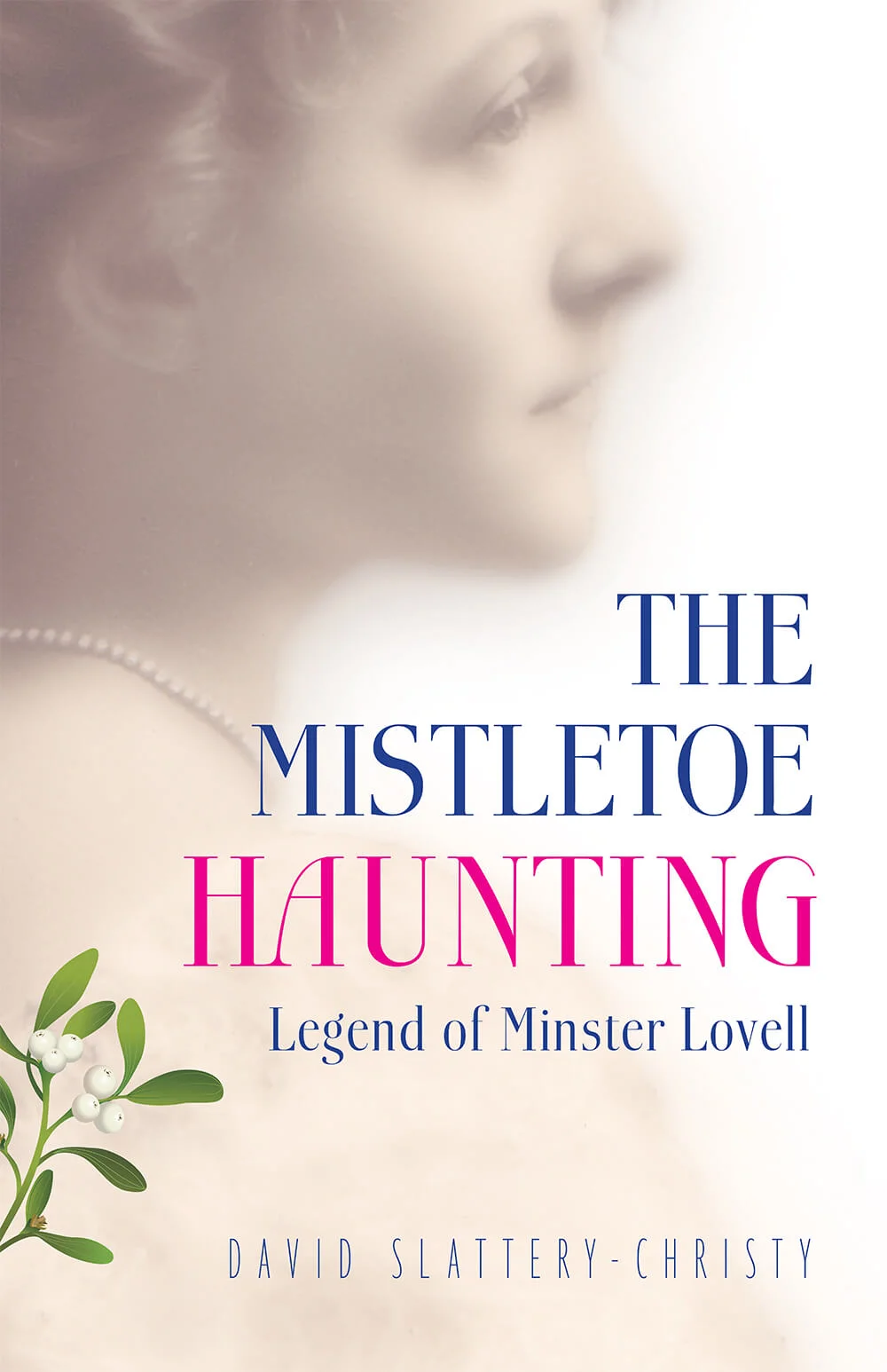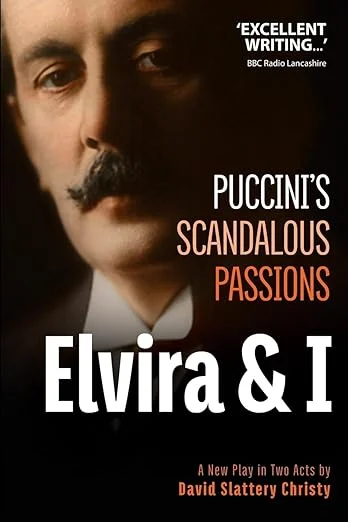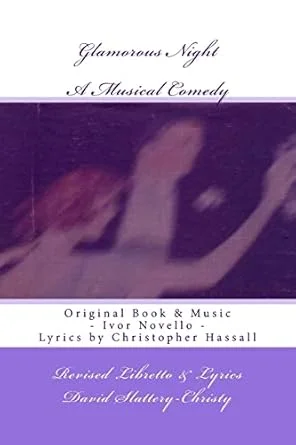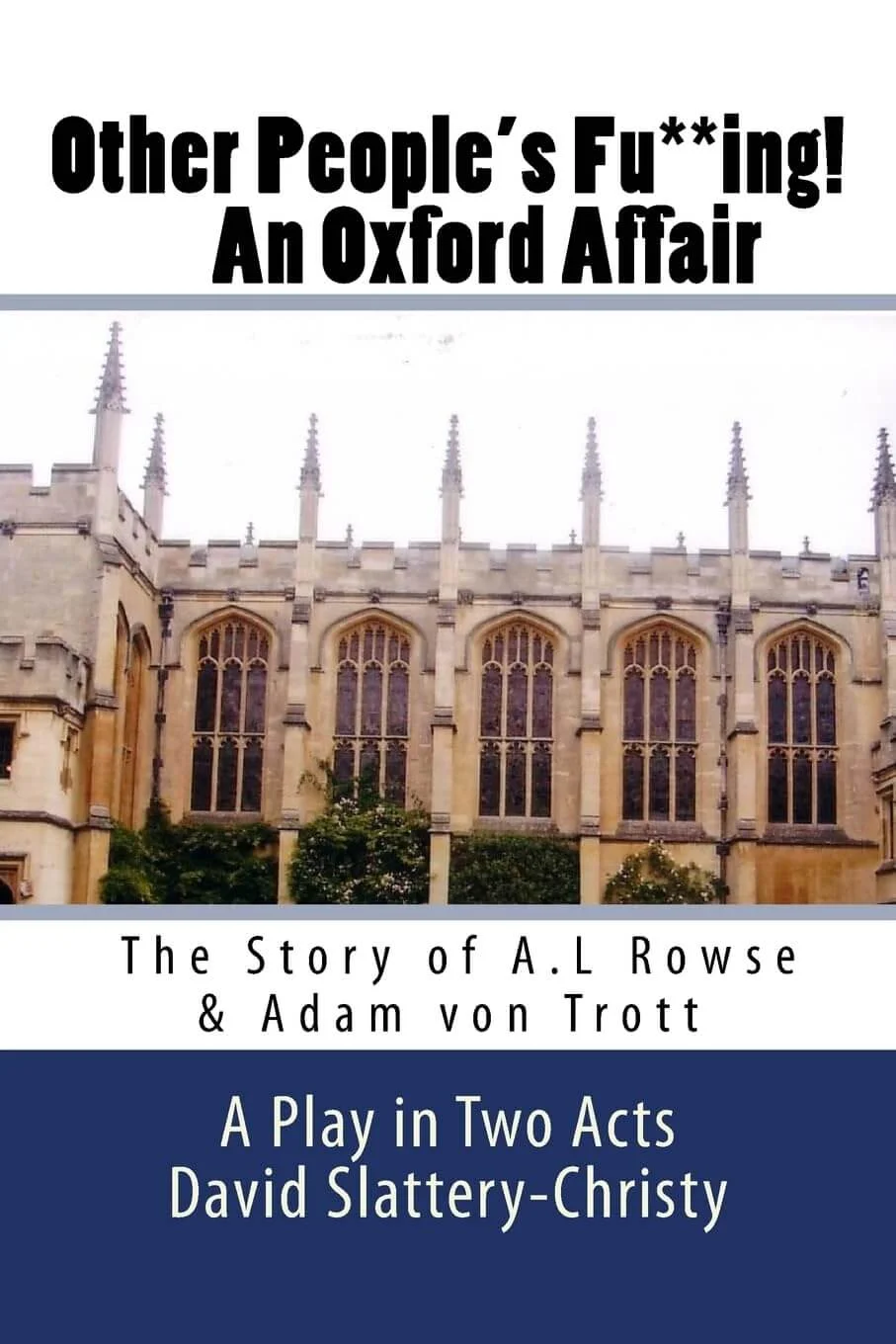David Slattery-Christy, who writes both fiction and nonfiction, was born in 1959 and brought up in Oxford. His parents moved to Blackpool in the late 1960s to run hotel businesses so he has spent many years living in Blackpool. The house David lives in on Whitegate Drive has an ongoing connection with Hollywood and the theatre. The house was also home to Hollywood actress Janet Munro – her stepmother Lilias Munro, who owned the house at that time, was also the make up artist for the BBC TV series The Good Old Days.
He graduated for London’s City University with a BA (Hons) in Journalism. In addition to this he has a Teaching Degree from Lancaster University and a Masters Degree in Arts (Dist) form UCLAN. He continues his professional development with research courses at the University of Oxford. He has worked in the performing arts industry as a playwright, producer and director and undertaken several projects for the BBC including a documentary on Ivor Novello ‘The Handsomest Man in Britain’ , alongside Stephen Fry, and the Radio 3 special Composer of the Week with Donald Macloud where he was the script advisor and special guest for the five hour long specials charting Novello’s musical career. David was also the Ivor Novello consultant for Robert Altman’s Oscar and BAFTA winning film Gosford Park.
Gosford Park is a movie about much, much more than Ivor Novello. The hidden depths to the characters, plot and direction are quite sublime. There is so much going on beneath that repeat viewing will always render something fresh to the surface. Visually it is one of the most beautiful movies I have ever seen and the cast list is stupendous. Credit to Bob Altman for assembling so many great names in one movie. It struck me that many of these people would have been happy to just appear at the back of a few frames as long as they could be in it. All the cast just loved working with him, and had a passion for the story and what the film was trying to do. That certainly shows in the finished product.
David’s stage plays include the award winning Forever Nineteen, After The Tone and The Post Card – which enjoyed London and New York productions, as well as touring nationally in the United Kingdom. His most recent play Naturally Insane! The Life of Dan Leno explores the Victorian comedian’s life and work and toured in the UK prior to performances in London’s West End at the Criterion Theatre in 2021 starring BGT finalist Steve Royle.
You can read more about Ivor Novello in David’s book just below:
Ivor Novello: My Life & In Search of Ruritania
“David is the absolute authority on Novello, and this new edition including Novello’s own MY LIFE is a bit of a must…” Alexandra Coghlan – The Sunday TImes.
This special edition was released in hardback in 2022 and a paperback version is now available in 2023. This includes MY LIFE an autobiography created by Ivor Novello in 1933. It charts his life from Childhood and his film and theatre career including the famous actors and actresses he worked with after WW1 and through the 1920s. Presented here unabridged. This comes after the 2016 BBC Composer of the Wee series that featured Novello’s music for the first time in its 70 year history when the author and Novello’s biographer, David Slattery-Christy, was script consultant and special guest for the five, hour long programmes with the BBC Concert Orchestra.
Also included is the biography of Novello titled IN SEARCH OF RURITANIA, also written by David Slattery-Christy. This is not a sentimental journey but an honest and affectionate journey into the life, work and world of the late Ivor Novello (1893-1951). From his first success as a composer with the WW1 hit Keep The Home Fires Burning, he would go on to become a film star, playwright and stage actor, and then the creator of glamorous Ruritanian musicals that filled the Theatre Royal, Drury Lane. Ruritania was the mythical land in which he set these musicals, it was a land of his own invention and also one that reflected the historical and social events in the real world around him.
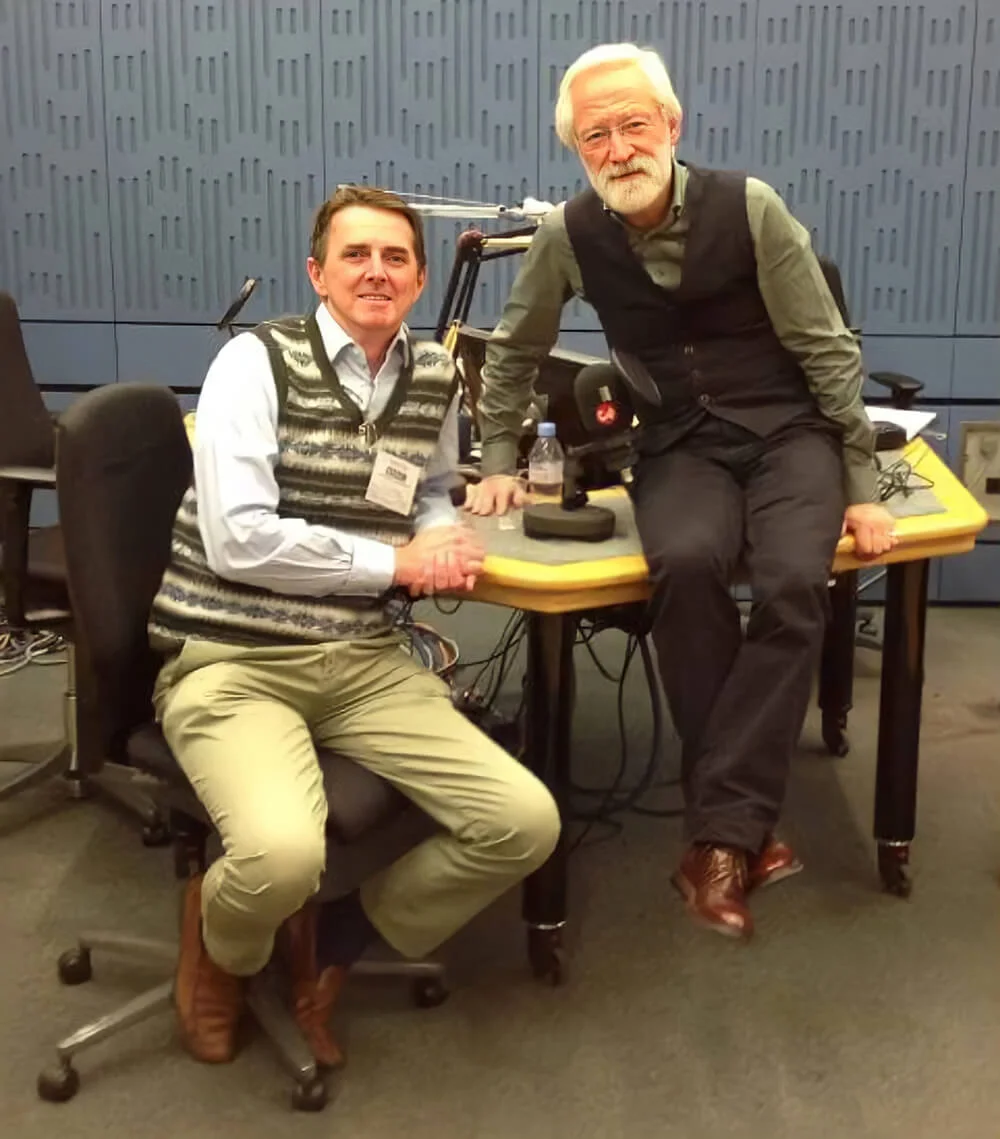
Donald Macloud with David Slattery-Christy for BBC Radio 3 studio interview about Ivor Novello
Interwoven through the story are accounts of the author’s experiences whilst involved with Novello’s works. From the tribute concerts at the Theatre Royal, Drury lane, to the role he undertook on the Oscar and BAFTA winning film GOSFORD PARK. Along the way he met and interviewed the likes of Mary Ellis, who starred in Glamorous Night with Novello in 1935; Douglas Fairbanks Jnr, who often stayed at Novello’s country home with his wife Joan Crawford; Gordon Dutson, Novello’s last secretary and lover; Nicholas Hassall, whose father, Christopher Hassall was Novello’s lyricist and close friend.
Novello’s sudden death in 1951, aged just 58, was front page news. His funeral route was lined by thousands of fans. His circle of friends closed ranks to protect his memory. In fact what they achieved was destructive. Within ten years of his death he was all but forgotten, as if he had never existed.
Flyte or Fancy: Evelyn Waugh Meets Harry Clifton On The Road To Brideshead
Evelyn Waugh described the Cliftons of Lytham Hall as “all tearing mad” during visits in the 1930s. Join him and Harry Clifton on a journey of love, friendship, excess and liberation as they fight to be free of the sexual, dynastic and religious expectations the world demands of them. With a mix of fact and fiction, join us for this journey to a land that might-have-been as we meet the eccentric Harry Clifton and his family, and his adventures with friends Bertie Pemberton-Billing and Evelyn Waugh at Oxford in the 1920s, whilst an undergraduate at Christ Church. Discover their association with the Hypocrites Club and the notorious private drinking clubs that revelled in hedonism and sexual liberation. Harry and Evelyn were both eventually sent down from Oxford without degrees.
Harry’s irresponsible decisions, after the death of his father, and his wanton disregard for his family’s heritage and reputation, and his obsession with the occult and mysticism, that led him to rely on the White Goddess and the Ghost of Hollywood to guide him with disasterous financial decisions. His darker side inspired by his favourite author and poet Edgar Alan Poe. From an equally disastrous marriage to purchasing Imperial Faberge Eggs, private suites at the Ritz Hotel and Claridges, and the squandering of eye-watering amounts of money, a doomed foray into film producing with Brian Desmond Hurst, his journey continues through the 1930s as his reckless behaviour threatens hundreds of years of his family’s reputation and heritage.
On the eve of WW2 it all comes crashing down. Evelyn Waugh decides to separate from his friend but do the seeds of that friendship with Harry influence Waugh’s character Sebastian Flyte in Brideshead Revisited? His most famous novel was finally published in 1945 much to the displeasure of Harry’s widowed mother Violet Clifton. She never spoke to Waugh again.
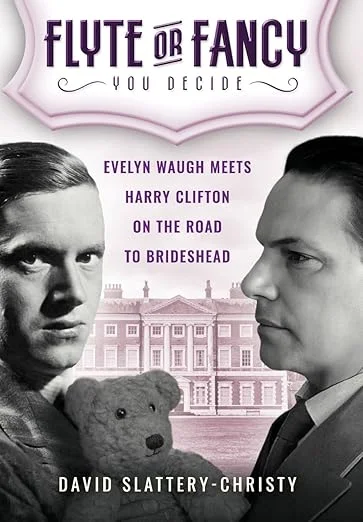
Traveller’s Tale: The Making Of A Fairground Showman
Traditional fairgrounds were the most popular and eagerly anticipated events in cities, towns and villages across the United Kingdom and especially so in the first half of the 20th century. In that inter-war era the music hall’s dominance was starting to fade with the rise of cinema and radio becoming increasingly popular forms of entertainment. Nothing however replaced the joy and excitement of the annual fair arriving for two or three days each year. David Slattery-Christy’s book gives us an insight into the life of his grandfather Reg Pratley, born in a small Berkshire village called Appleton near Oxford, who literally ran away to realise his dream to be a fairground showman. He worked and toured with the famous William (Billy) Nichols fairground empire and established himself as a Master Showman by the time of his death. It is also a fascinating insight into the life in those small rural communities of that period; a life that has now all but disappeared. Walter Edward Reginald Pratley, known to his family as Reg, was a Berkshire farm boy with a dream. He wanted to escape the everyday and experience adventure. Hearing stories of his families lost heritage as travellers from his grandmother Lucy Clemstone Pratley awoke his dream. When the fairground came to his village of Appleton near Oxford he befriended them and decided that the fair would never leave him behind again when they packed up and left.Fate, the Royal Navy, love and the Great War all stood in his way but he survived against the odds and managed to make his dream come true. During the 1920s and 1930s he became a respected Master Showman travelling for the famous William (Billy) Nichols and his fairground empire. His Gallopers were his pride and joy and he named the carved wooden horses after his children. His travelling circuit included London’s Forest Gate and annual fairgrounds at Reading, Newbury, Swindon, Abingdon, Banbury, Stratford Upon Avon to name a few and of course Oxford’s famous St Giles Fair.A few months prior to WW2 tragedy struck him and his family. Nothing was ever the same again. This is his story and a story of that time when the fairground reigned supreme for leisure and excitement and was eagerly awaited each year by thousands in towns and villages across the country.My grandfather’s story is truly remarkable and is now preserved as part of fairground and social history from the early 20th Century.David is an award-winning playwright and author of several books and has worked on many theatre, musical theatre and film projects. His play on the life of preeminent Victorian music hall comedian titled ‘Naturally Insane! The Life of Dan Leno’ had a successful tour and will have a West End showcase at the Criterion Theatre in 2021. He was also the Ivor Novello Consultant on the BAFTA and OSCAR winning Film Gosford Park.He studied for a BA (Hons) in Journalism at London’s City University; a PGCE at Lancaster University and a Master of Arts in Scriptwriting (Dist) at the University of Central Lancashire. In addition to this he has undertaken Research and History courses at the University of Oxford.
Mildred on the Marne: Mildred Aldrich, Front-line Witness 1914-1918
This is the story of 61-year-old Mildred Aldrich and her experiences of the Great War. She retired to a small hill-top house called La Creste in February 1914, with views across the Marne river and valley, little realising she would become embroiled in the first major battle of the war. In spite of the danger she decided to stay and help the British soldiers. Her home was for a few days behind German lines but the British pushed the Germans into retreat and La Creste remained in British territory for the duration. They entrenched in the Marne Valley and Mildred’s ‘beloved panorama’ as she described the view, turned into the valley of horror and death. Informed by journalist Mildred’s unpublished journals and voices of those serving in the BEF, along with historical military background, this book examines events from the unique perspective of a remarkable woman who lived through them.
Naturally Insane! The Life of Dan Leno
A play that captures the heart and soul and genius of our greatest Victorian comedian…” Roy Hudd OBE. “Unique, heartfelt production…” Peter Kay”Comical, gripping, poignant…” Lancashire Evening Post.
Dan Leno was the most famous music-hall and Drury Lane pantomime star of the late Victorian and early Edwardian era. His name lives on in legend – his early death in 1904 at the age of 43 meant he was never immortalised in film. He did influence comedians like Charlie Chaplin and Stan Laurel among others. Born George Wild Galvin in 1860 in Somers Town near King’s Cross Station in London. The cottage was demolished as part of the clearance of a slum area to make way for St Pancras Station. According to Dan, the site of the cottage is about halfway down platform one and to the left! His early childhood was spent touring the northern music halls as part of his step-father’s act ‘The Lenos’ – he then went on to be billed with his brother Henry as ‘The Great Little Leno’s’. Their act involved tumbling, juggling, contortions and comedy capers. He would later become the preeminent pantomime star at the Theatre Royal, Drury Lane, where he created the role of Mother Goose and other pantomime traditions that carry on to this day. The play is set in the last week’s of Dan Leno’s life and we discover his story as we meet his wife, Lydia, and his brother, Henry. His struggles with an undiagnosed brain tumour, mental health issues and a love of gin. We also meet Herbert Beerbohm Tree, who Dan discussed his ambition of playing a Shakespeare role with, and also his Doctor who mistreated him for both insanity and syphilis.This is a play I have wanted to write for a long time. It has been a pleasure to create and also a joy to research Dan Leno’s life.
Have a look at Blackpool Timeline’s post on the launch of the live shows of Naturally Insane! The Life of Dan Leno.
Watch the cast of Naturally Insane take a bow at the Criterion Theatre in London.
#NaturallyInsane The Life of Dan Leno curtain call #WestEnd @CriTheatre starring @steveroylecomic Nov 2021 @Philwalkercomic @rowly2510 @JohnnyThomson2 @musichallsoc @davidsoho1 @peterkay_co_uk @Rhodes_Media @CuffeandTaylor @LythamHall @UKP_Ltd @GylesB1 @CityVarieties pic.twitter.com/nbZ7A6qnP1
— D Slattery Christy (@DSCAuthor) December 15, 2021
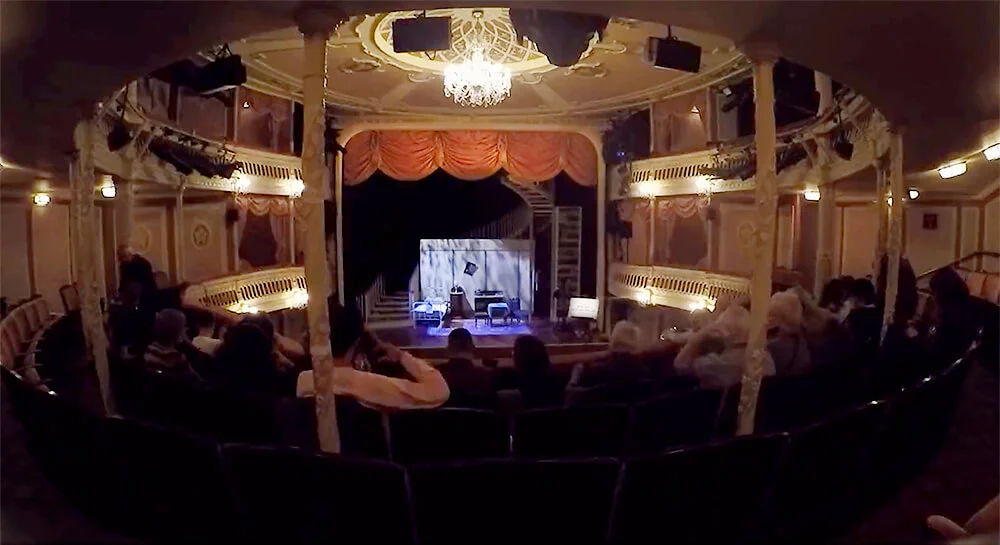
Royal Palace Gardens: Blackpool’s Lost Victorian Pleasure Gardens
“To go to Blackpool and not visit the Royal Palace Gardens is to visit London and not visit the Crystal Palace or Westminster Abbey, or go to Rome and not visit the Vatican or the Coliseum!” [Editor – London Weekly News 1891] Long before the famous Tower and Winter Gardens Blackpool’s Royal Palace Gardens at Raikes Hall was a world famous destination for variety and music hall stars and touring exhibitions and battle reenactments like ‘Savage South Africa’ and the ‘Afghan War’. With its lavish Grand Opera House, Indian Pavilion and famous botanical gardens, conservatories and menageries, it covered an area of over 40 acres. It was the first of Blackpool’s entertainment complexes to be lit using the new electric light in 1891 – a precursor to the famous illuminations. The garden’s history has been air brushed out and fallen into the shadow of its more famous, surviving, landmarks. This new book explores the history, along with adverts and images to bring it back to life, and to highlight again the Royal Palace Gardens and reestablish its rightful place in the town’s history.
Check out Blackpool TImeline’s two posts that David has written: Royal Palace Gardens and Raikes Hall.
Edwardian Beauty: Lily Elsie & The Merry Widow
This 3rd edition compilation includes a new foreword by the author, the book ‘Anything But Merry!’ and the Screenplay version adapted from the book titled The Last Edwardian Star. With a foreword by Sonia Berry.Discover the extraordinary life of one of Edwardian England’s most celebrated and revered musical comedy stars, Lily Elsie. From her childhood days in the music halls of Salford and her rise to fame as the child singing star “Little Elsie” (hailed by press and public as “the infant Patti”, after the world famous opera star Adelina Patti) to her arrival in London as a young woman.Her association with the most powerful theatre impresario of the time, George Edwardes, the father of the musical comedy genre, with his innovative and lavish productions at The Gaiety and Daly’s Theatre. Her friends included Gertie Millar, the most powerful and luminous of the “Gaiety Girls”.Elsie’s rise to fame as Sonia in Lehar’s The Merry Widow in 1907, produced by Edwardes at Daly’s Theatre, was achieved in spite of her lack of confidence and overwhelming stage fright that would leave her sick with nervous exhaustion and cause the press to accuse her of being “a part time actress” when she missed performances.Her image would endorse everything from toothpaste to face creams; the costumes and hats she wore for The Merry Widow were emulated everywhere. Retiring from the stage in 1911 to marry a handsome and wealthy husband, she enjoyed a brief period of domestic harmony as Mrs Bullough. But it wasn’t to last.The early signs of the paranoid neurosis and mental health problems which would overwhelm her in later years were already in evidence. She mastered the art of being reclusive long before Garbo took up the mantle. Her final years were spent in isolation, her personality eroded by her mental health problems. Elsie died alone in 1962, a tragic end to a life which had promised so much. In fact her life had been Anything But Merry from the very beginning.
The Mistletoe Haunting: Legend of Minster Lovell
A Mistletoe Bride is murdered on Christmas Eve, 1893. Her ghost haunts the family stately home, Willow Manor, until her remains are discovered and the truth revealed. Set in the present day and Victorian England, the tragic young bride can at last share her story and put right the terrible injustice that destroyed her family and those she loved. The city of Oxfords Randolph Hotel, and the village of Minster Lovell, the site of the stately home, are the locations for this heartwrenching story of deceit, love and betrayal. The Mistletoe Bride, a local legend, was popularised in a poem by Thomas Haynes Bailey in 1884, and then set to music to become the popular song: The Mistletoe Bough!
Elvira & I : Puccini’s Scandalous Passions: A New Play in Two
A new two act play from award-winning playwright David Slattery-Christy. Exploring the stormy relationship between opera composer Giacomo Puccini and his wife Elvira. Set in their villa at Torre Del Lago, Italy, in 1901 to 1909, the play unravels their emotional life and also how it mirrored the tragic opera plots he composed during this period including Madama Butterfly and The Girl of the Golden West. The play looks at the complex relationship between them and how it survived numerous affairs, irrational jealousy, and Elvira’s slanderous accusations that ended in a tragic suicide.
Glamorous Night: A Musical Play – Libretto – Revised
Glamorous Night, a musical play, was first produced in 1935 at the Theatre Royal, Drury Lane, in London’s West End. It was the creation of Ivor Novello who wrote the original book and music, with lyrics by Christopher Hassall. Novello wrote the show as a starring vehicle for himself and the American opera diva Mary Ellis – it also starred a young Elisabeth Welch. It was a great success and set Novello on the road to writing other musicals in which he could star with a non-singing role including Crest of the Wave, The Dancing Years, Perchance to Dream and King’s Rhapsody. Synopsis: We start with the prologue that explains how Novello invented the show on the spur of the moment. He then leads us on the journey with him to spend a Glamorous Night in the Ruritanian land of Krasnia. His character is Anthony Allen. Anthony, a journalist always in search of good copy in the lives of the rich and famous – or infamous – sets off on a luxury cruise. Whilst visiting the Kingdom of Krasnia in the Balkans, he plans to see Glamorous Night, in which Militza Hajos, the opera prima-donna is singing. Militza, the mistress of King Stefan of Krasnia, is to perform in the new opera with her friend, and erstwhile love, the tenor Lorenti. Krasnia is a hotbed of political unrest masterminded by Lydyeff the Prime Minister. However, Lydyeff’s plot to assassinate Militza during her performance is prevented by Anthony, which earns him her gratitude. Militza’s departure from the country is urged both by her enemies, who wish to be rid of her, and by friends who fear for her safety. By chance, she and her devoted companion Cleo Wellington join the cruise ship on which Anthony occupies the luxury suite – which Militza tries to claim for herself. Lorenti is also on board, pleased to be leaving troubled Krasnia. During a ship’s concert, as Cleo entertains the passengers, a new plot is revealed – to kill Militza by blowing up the ship and making it sink. She and Anthony escape the sinking ship as do their friends. Act Two embraces a Gypsy Wedding and a counter plot – led by the loyal gypsies from where Militza comes from, to restore King Stefan and Militza to public favour and quash the revolution Prime Minister Lydyeff has planned for Krasnia. Anthony is drawn into the struggle by his love for Militza and saves the King’s life by shooting Lydyeff Peace is achieved and the King’s threatened abdication is averted, but at the price of Militza giving up her love for Anthony and agreeing to marry Stefan. Anthony must return to England, he has the story of a lifetime but he knows it is one that will never be written. I was first asked to revise the libretto and structure of the show in the late 1990s as a precursor to a West End revival that alas faltered at the eleventh hour. However, the revised version finally had its premiere at the Buxton Opera House in 2008 produced by Present Company, demonstrating the success of the revised version and making the show workable for today’s audiences.
Other People’s Fu**ing! An Oxford Affair: The story of A.L Rowse & Adam von Trott
This new play charts the strange and intense relationship between All Souls Fellow, and historian, A.L. Rowse and German aristocrat Adam von Trott zu Solz. They met as young men in Oxford in 1929 and remained close until Trott was executed by the Nazis in 1944 for his part in the failed July 20th plot to assassinate Hitler. The play includes Al Bowlly and some of his recordings – so evocative of the 1930s. Rowse never got over Trott’s death and his influence on him continued until Rowse’s own death aged 93 in 1997. In spite of his brilliance, Rowse never felt that he really fitted in. He often made outrageous statements to shock his fellow academics – his cynicism for the world grew until he was quite bitter about waste, human proliferation but most importantly his own income tax bill! “This filthy twentieth century – I hate its guts!”


